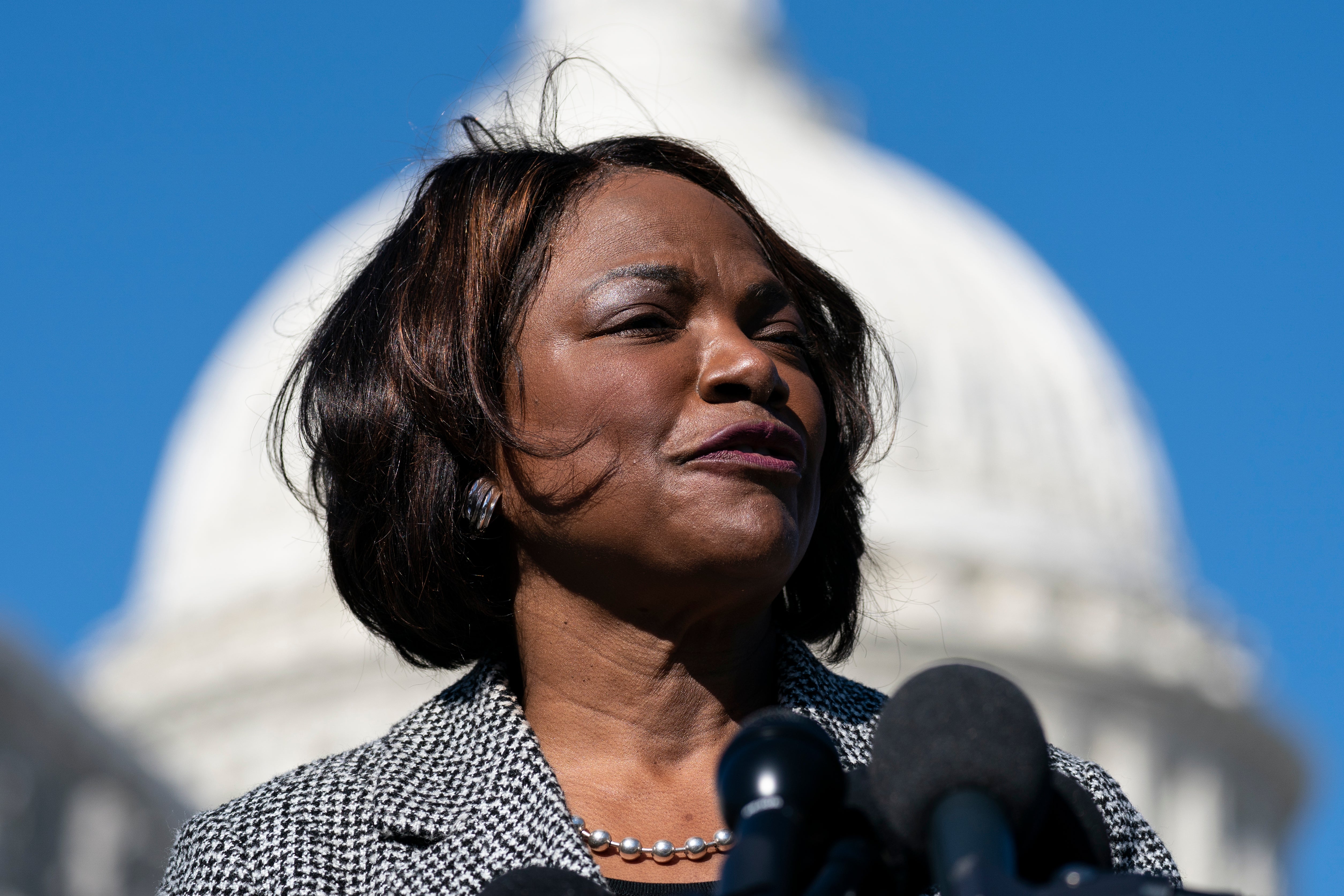Why it might be a long, long time before the Democrats have another Black woman Senator
A ‘bad year’ for two stellar candidates is a sign of how nationalized American politics has become


Your support helps us to tell the story
From reproductive rights to climate change to Big Tech, The Independent is on the ground when the story is developing. Whether it's investigating the financials of Elon Musk's pro-Trump PAC or producing our latest documentary, 'The A Word', which shines a light on the American women fighting for reproductive rights, we know how important it is to parse out the facts from the messaging.
At such a critical moment in US history, we need reporters on the ground. Your donation allows us to keep sending journalists to speak to both sides of the story.
The Independent is trusted by Americans across the entire political spectrum. And unlike many other quality news outlets, we choose not to lock Americans out of our reporting and analysis with paywalls. We believe quality journalism should be available to everyone, paid for by those who can afford it.
Your support makes all the difference.When the Senate voted to confirm Ketanji Brown Jackson to the Supreme Court yesterday, plenty of members of the Congressional Black Caucus were on hand, including one who hopes to be on the floor next year: Democratic Congresswoman Val Demings, who is running a long-shot race against Florida Senator Marco Rubio.
Vice President Kamala Harris’s return to the Senate to preside threw into sharp relief the upper chamber’s dearth of Black women’s voices, who (as I said in Thursday’s column) could serve as a vital counterweight to right-wing attacks. Speaking to your dispatcher, Demings railed against how Republicans like Senators Josh Hawley and Ted Cruz treated Jackson during her hearing, saying they essentially treated her like a criminal.
"And when America puts forth its best, I would ask the Senators who treated her like America’s worst to think about if that was their daughter sitting there," she said. "Putting forth America’s best, would they want their daughter to be treated in such a disrespectful way?"
In many ways, Demings would be the perfect candidate. Before she was elected to the House in 2016, she was chief of the Orlando Police Department, a record that can help stave off any attempt to tar her with left-wing policies like defunding the police. That particular issue was a target for right-wing misinformation and disinformation, with unflattering narratives taking hold in Latino media in Florida during the 2020 elections.
Demings is one of two Black women candidates running for Senate in 2022. The other is Cheri Beasley, the first Black woman chief justice of North Carolina’s Supreme Court, who is running to replace retiring Senator Richard Burr. In 2020, she actually outran President Joe Biden in the Tar Heel state in 2020 by 11,258 votes, and only lost her race to be chief justice by a margin of 401. On Thursday, her campaign announced she raised a whopping $3.6 million in the first three months of 2022. This, as the state’s GOP primary looks set to be a contentious fight between Trump-endorsed Ted Budd and former governor Pat McCrory (and a new WGHP/The Hill/Emerson College poll showed Budd eclipsing the former governor).
All of this should mean that both Demings and Beasley are primed to be strongly competitive. The problem is that they are running this year.
North Carolina voted for Trump in 2020 and 2016, despite the fact it also elected a Democrat for governor both years. And that same poll showed Beasley behind Budd and former Republican Representative Mark Walker, but also slightly ahead of McCrory, who lost his race for reelection in 2016 – perhaps one reason Trump has opted for somebody else. Biden is also incredibly unpopular in North Carolina, with one poll this week putting his approval in the state at a dismal 35 per cent. That puts Beasley at a significant disadvantage.
And she might be in a better spot than Demings. While the Rubio challenger reportedly raised more than $10 million last fundraising quarter, Florida is also trending rightward. The state’s Republicans finally overtook Democrats in terms of voter registration last year, but that was just a lagging indication of the state’s red trend.
Both Florida Senators are Republicans, and its governor, Ron DeSantis, is likely to win re-election. Rubio also hails from Miami, home of the state’s Cuban-American population, who lean heavily conservative since their escape from the communist regime of Fidel Castro. That gives Rubio an advantage despite the fact there are more registered Democrats in Miami-Dade County than Republicans. (Incidentally, Francis Suarez, the Republican mayor of Miami, praised Jackson, who grew up there, upon her nomination).
None of these problems are necessarily the fault of Demings or Beasley. Both are eminently qualified, and if they were running in a presidential year or in a midterm where a Republican was in the White House, they’d be much more competitive. Rather, the fact that they could easily end up casualties of a bad year for Democrats is a sign of how nationalized politics has become. Nor should they be faulted for running in a "bad year"; sometimes candidates can only run when the time is right.
But the fact both Black women candidates with stellar resumés will have an uphill climb means it likely could be a while before the Senate Democratic caucus counts even one Black woman among its number once again.
Join our commenting forum
Join thought-provoking conversations, follow other Independent readers and see their replies
Comments